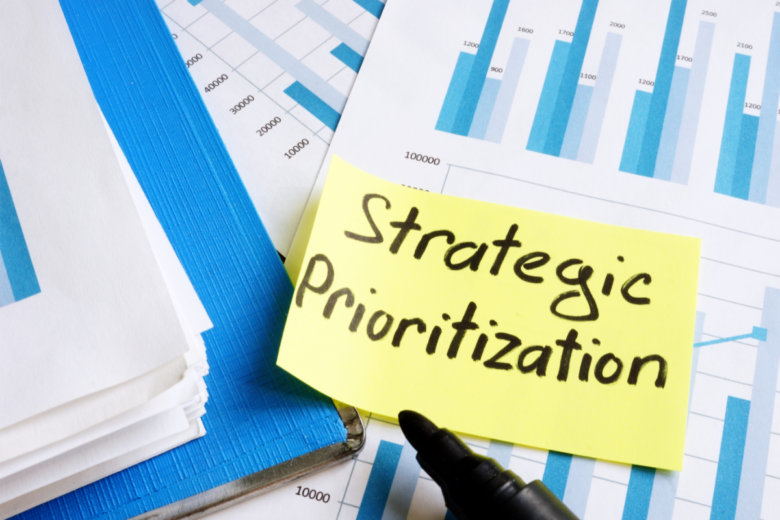Self-care is an essential aspect of maintaining overall health and well-being. However, in today’s fast-paced world, it can be challenging to find the time to prioritize self-care. Many people struggle to balance their work, family, and personal lives, leaving little time for themselves. As a result, they may neglect their physical and mental health, leading to burnout, stress, and other health issues.
To address this problem, many individuals are turning to simple strategies for making time for self-care. These strategies may include setting aside specific times for self-care activities, such as exercise or meditation, delegating responsibilities to others, or saying no to commitments that do not align with their priorities. By implementing these strategies, individuals can create a more balanced and fulfilling life, while also improving their overall health and well-being. In this article, we will explore some of the most effective strategies for making time for self-care and discuss how they can benefit individuals in all areas of their lives.
Understanding Self-Care
Defining Self-Care
Self-care refers to the practice of taking care of one’s physical, emotional, and mental health. It involves making time for activities that promote well-being and reduce stress. Self-care is not a one-size-fits-all approach and can vary from person to person. It can include activities such as exercise, meditation, spending time with loved ones, getting enough sleep, and engaging in hobbies or interests.
Benefits of Self-Care
There are numerous benefits to practicing self-care. It can help reduce stress levels, improve mood, increase productivity, and boost overall health and well-being. By taking care of oneself, individuals may also experience improved relationships with others, increased self-esteem, and a greater sense of fulfillment in life.
Research has shown that practicing self-care can also have long-term benefits. It can help reduce the risk of developing chronic health conditions such as heart disease, diabetes, and depression. Additionally, it can help individuals better manage existing health conditions.
Incorporating self-care into one’s daily routine may seem challenging at first, but it is an important aspect of maintaining overall health and well-being. By prioritizing self-care, individuals can improve their quality of life and better manage the demands of daily life.
Prioritization Techniques
Time Management Fundamentals
One of the most important aspects of prioritizing self-care is effective time management. This means setting clear goals, breaking them down into smaller tasks, and creating a schedule that includes time for self-care activities. To ensure that self-care remains a priority, it is important to schedule these activities into the day just as one would with any other important task.
Identifying Personal Priorities
In order to prioritize self-care, it is important to identify what activities are most important to an individual’s overall well-being. This may include activities such as exercise, meditation, spending time with loved ones, or pursuing hobbies. By identifying these priorities, individuals can ensure that they are dedicating time to the activities that are most important to them.
Saying No to Overcommitment
One of the biggest obstacles to prioritizing self-care is overcommitment. It can be difficult to say no to requests from others, but it is important to set boundaries and prioritize personal needs. This may mean declining invitations to social events or delegating tasks at work. By saying no to overcommitment, individuals can ensure that they have the time and energy to prioritize self-care activities.
Overall, effective prioritization techniques can help individuals make time for self-care and improve their overall well-being. By setting clear goals, identifying personal priorities, and saying no to overcommitment, individuals can create a schedule that includes time for self-care activities.
Practical Self-Care Strategies
Self-care is crucial for overall well-being, but it can be challenging to prioritize in our busy lives. Here are some practical self-care strategies that can be easily incorporated into daily routines.
Quick Self-Care Wins
When time is limited, quick self-care activities can be beneficial. These activities can be done in a matter of minutes and can help reduce stress and increase relaxation. Here are some quick self-care wins:
- Take deep breaths: Deep breathing can help calm the mind and reduce stress. Take a few deep breaths throughout the day to feel more relaxed.
- Stretch: Stretching can help release tension in the body and improve flexibility. Take a few minutes to stretch your body throughout the day.
- Listen to music: Listening to music can be a great way to relax and reduce stress. Create a playlist of your favorite songs and listen to it when you need a quick break.
Incorporating Self-Care into Daily Routine
Incorporating self-care into daily routines can help make it a habit and ensure it is prioritized. Here are some ways to incorporate self-care into daily routines:
- Schedule self-care time: Set aside time each day for self-care activities. This could be as little as 10 minutes or as long as an hour.
- Practice mindfulness: Mindfulness can help reduce stress and increase relaxation. Incorporate mindfulness practices into daily routines, such as taking a mindful walk or practicing mindful breathing.
- Prioritize sleep: Getting enough sleep is essential for overall well-being. Make sure to prioritize sleep by setting a consistent sleep schedule and creating a relaxing bedtime routine.
By incorporating these practical self-care strategies into daily routines, individuals can prioritize self-care and improve their overall well-being.
Overcoming Common Obstacles
Dealing with Guilt
One of the biggest obstacles to self-care is guilt. Many people feel guilty when they take time for themselves, especially if they have a lot of responsibilities or people depending on them. However, it’s important to remember that taking care of yourself is not selfish, but rather an essential part of being able to take care of others.
To overcome guilt, it can be helpful to remind yourself of the benefits of self-care. When you take care of yourself, you are better able to handle stress, have more energy, and are generally happier and more productive. You can also try reframing your thoughts by telling yourself that taking care of yourself is actually a responsible thing to do, as it allows you to be the best version of yourself for others.
Finding Motivation
Another common obstacle to self-care is a lack of motivation. It can be hard to find the energy to take care of yourself when you’re feeling tired, stressed, or overwhelmed. However, there are several strategies that can help you find the motivation you need.
One effective strategy is to set specific goals for your self-care activities. For example, if you want to start exercising more, set a goal to go for a walk or jog for 30 minutes three times a week. Having a specific goal can help give you a sense of purpose and motivation.
Another strategy is to find activities that you enjoy. Self-care doesn’t have to be a chore; it can be something that you actually look forward to. Try different activities until you find ones that you truly enjoy. This could be anything from reading a book to taking a yoga class to spending time with friends.
Overall, overcoming common obstacles to self-care requires a combination of mindset shifts, goal-setting, and finding activities that you enjoy. With these strategies, you can prioritize self-care and reap the benefits in your physical and mental health.




